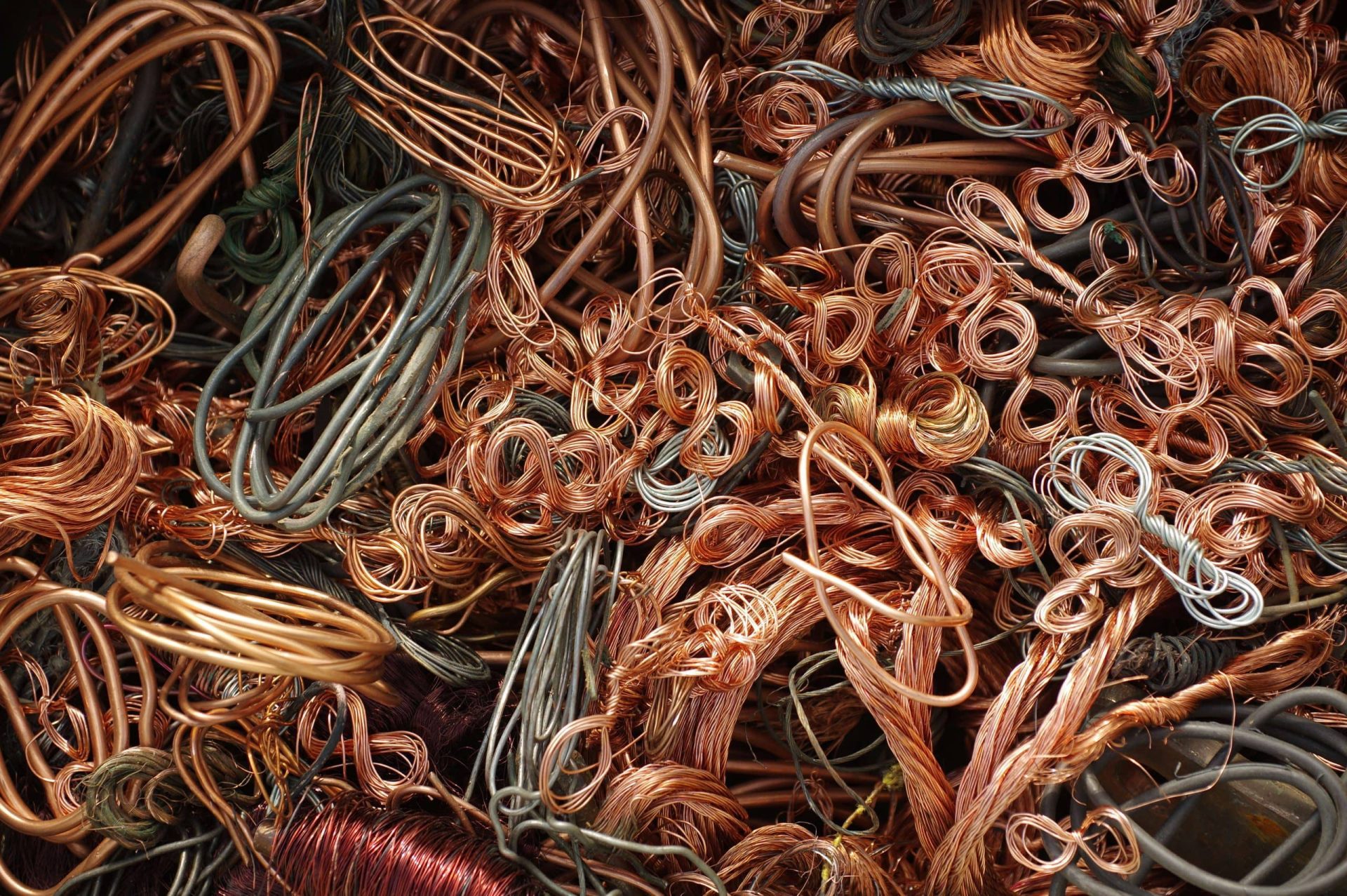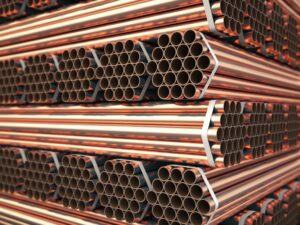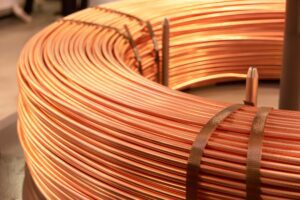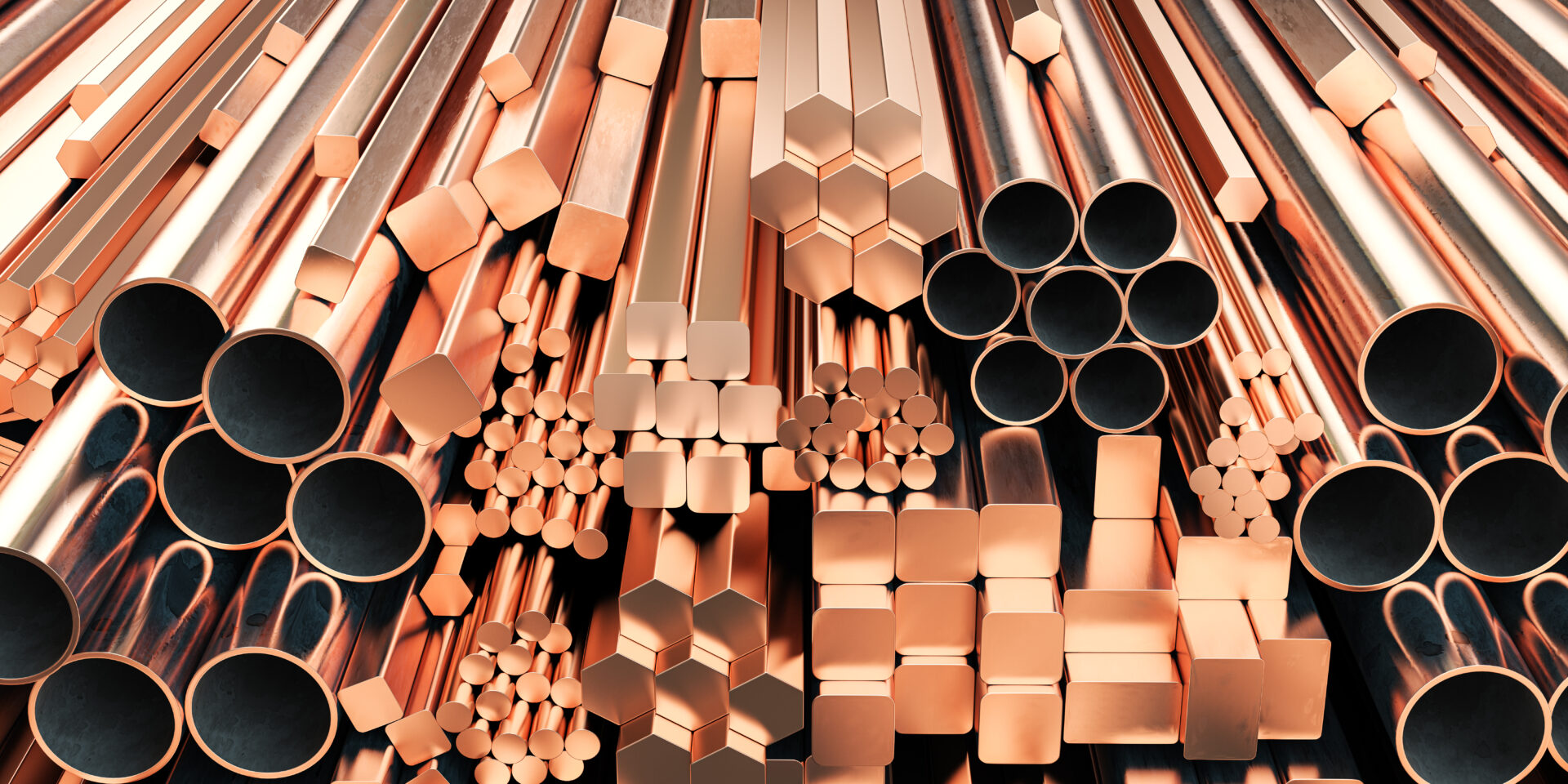
If you’re planning on working with metals it is important to understand their unique differences. This applies to those welding, construction, and even interior design planning.
Knowing the properties and benefits of each metal is important to understanding their value.
While some metals are obviously very different, like aluminum vs copper, others can be a little difficult to differentiate.
In this article, we will discuss the differences between brass vs bronze vs copper so you can know how to best use them all.
What Is Brass?

Brass is made up of multiple elements, such as copper, zinc, and sometimes tin making it a metal alloy. It is typically the cheapest of all three of the metals but it contains the most zinc. Its appearance and strength depend on how much copper versus zinc is in the metal.
When there is more Zinc, it is stronger, more ductile, and more yellow but when there is more copper it will appear as a dull gold.
Brass is used in plumbing fixtures, musical instruments, and interior decorations due to its durability, workability, and gold appearance.
Brass’s History
Brass was first known to be used in 500 BC and was originally called mountain copper and was made up of naturally occurring copper and zinc. The ancient Romans used brass for decorations like plates for engraving.
Brass is the only one of the three that didn’t have its own age.
What Is Bronze?

Bronze is also a metal alloy made up of copper but uses other elements like tin, zinc, aluminum, arsenic, and more. The results vary depending on the elements chosen and their percentage.
While bronze does have more copper in it making the metal more valuable than brass, it still contains a lower copper content.
Bronze is used in sculptures, musical instruments, medals, marine and fishing, and industrial applications due to its strength and goldish appearance. It is especially used in bearings and bushings due to its low metal-in-metal friction and resistance to corrosion.
Bronze’s History
Bronze age dates back to about 3500 BC. Some of the earliest artifacts were found in the Middle East and China.
The Bronze Age occurred right after the Copper Age around 6000 BC – 3000 B.C. Bronze was used to create armor, helmets, and weapons such as spears and daggers.
What Is Copper?

Copper is a metallic element labeled Cu on the periodic table. It is a resource that can be found in the earth and is very common. Despite being fairly common, because copper is purer it often has more value and is able to be recycled without losing any quality.
You can find it all around you. It is used in electrical systems like wires because it is highly conductive and can withstand heat. Additionally, it is often used for pipes in your plumbing due to its resistance to corrosion.
Copper also has bacterial antimicrobial resistance meaning it does not degrade and can kill bacteria. This makes it the perfect metal for food equipment.
Copper’s History
Copper has been used since 900 B.C. and is one of the earliest documented metals. The Copper Age also known as the Chalcolithic Period began around 3500 B.C.
It was widely used by Greeks and Romans for tools and accessories as well as to sterilize wounds and purify their water.
Copper vs. Brass vs. Bronze: What Are The Differences?
From a glance, these three red metals may look the same, and it can be a little confusing to tell them apart.
Color
Copper is a distinct reddish-brown and can often be buffed and polished to give extra luster
Brass’s color depends on the elements in the alloy. It is a brighter reddish-yellow with more Zinc in it and goldish when there is more copper.
Bronze is a dull gold due to its higher percentage of copper. This makes it the perfect choice for accessories around the house.
Sound
Listen to metal. No, I don’t mean Metallica. If you lightly strike the metal you can determine if it is copper vs. an alloy like brass or bronze.
Copper will make a low, deep sound while bronze makes a higher-pitched sound, and brass is a bit brighter than bronze.
Composition
As we mentioned earlier copper is often pure but it can have impurities so it is something to be mindful of because it can change its value.
Brass typically has copper and zinc but can also contain amounts of tin or other metals.
Bronze consists of copper and tin with sometimes additional silicon, aluminum, arsenic, magnesium, phosphorus, and more. Bronze usually has a higher percentage of copper.
Magnetism
You may have heard us say before that all non-ferrous metals are not magnetic. BUT, depending on the elements in the alloys, like iron, strong magnets may detect it.
Copper though should never be magnetic.
Durability
Brass is the least durable and can crack easier but is more resistant to corrosion than copper.
Copper will turn that well-known statue of liberty green as it oxidizes to prevent further corrosion. Copper is a little more durable but is the most flexible.
Bronze is very hard, sturdy, and the most resistant to corrosion such as salt water, and is not easily flexed.
Recycle Your Brass, Bronze, And Copper With GLE Scrap Metal
Need help navigating metal? Are you a business looking to buy or sell copper, brass, or bronze? We purchase, process, and reintegrate all metals.
We closely monitor the Comex & LME in order to offer you the best possible price for your copper, brass, and bronze. Our team’s expansive knowledge of red metals, combined with our strong relationships with end-users, allows us to pay top dollar for your loads.
Recycle your scrap brass, bronze, and copper with our experienced team. Request a free quote today.



